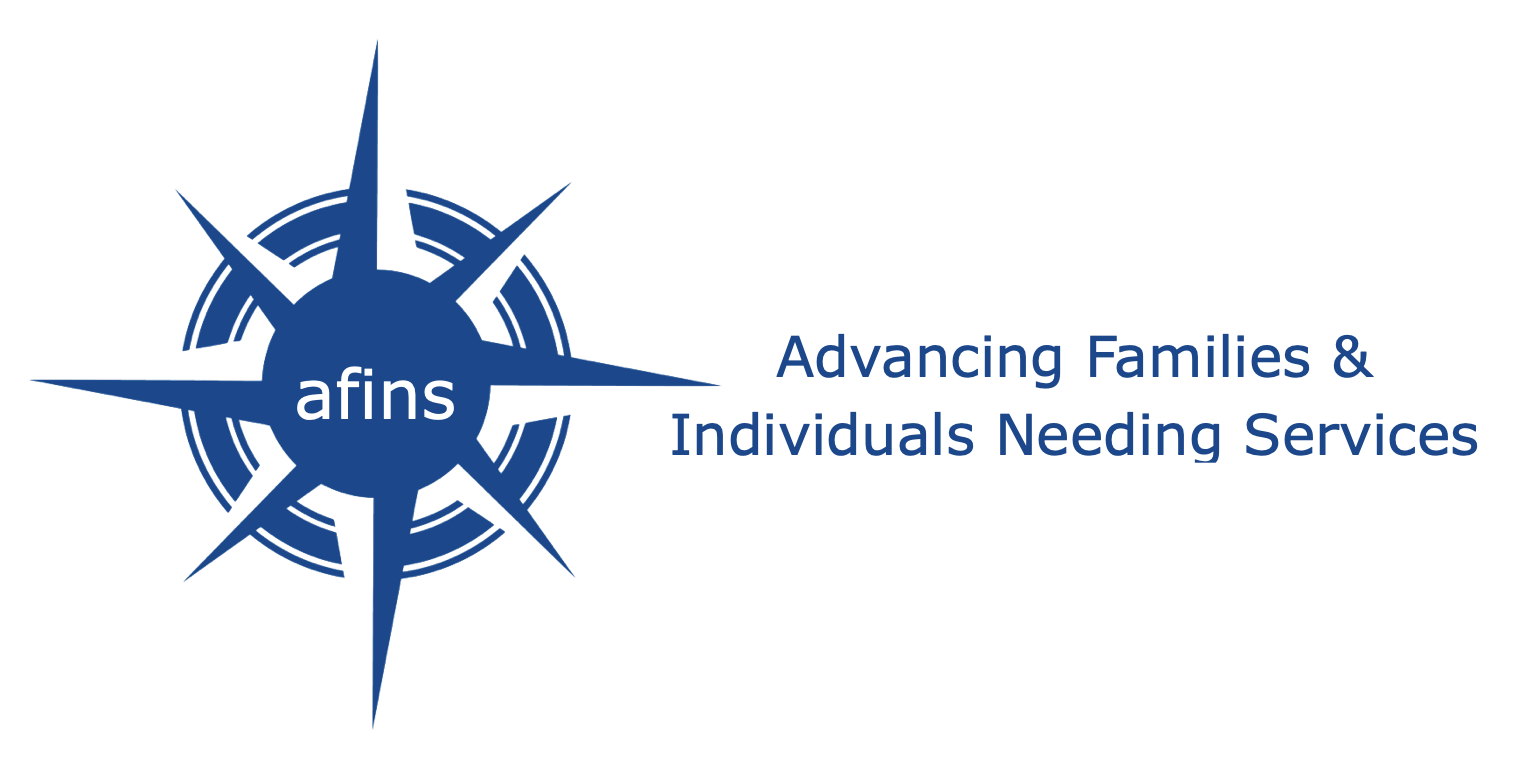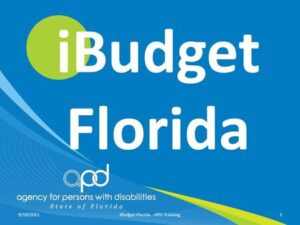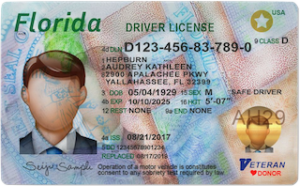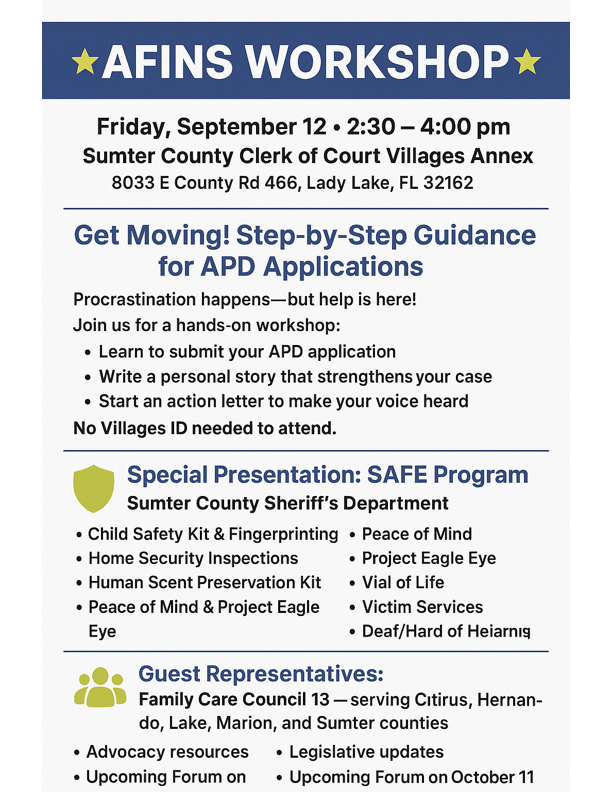Key Agencies and Programs to Know for Individuals with IDD
Navigating services and resources for a loved one with intellectual or developmental disabilities (IDD) can feel overwhelming. Fortunately, there are numerous agencies and programs designed to provide support, advocacy, and long-term planning assistance. Understanding these resources helps families access funding, legal protections, job training, healthcare, and more.
Agency for Persons with Disabilities (APD)
- APD provides waiver funding for services that help individuals with IDD live, work, and thrive in their communities. This may include personal care, respite, therapy, and day programs. For families, APD is often the cornerstone for accessing essential supports. Visit the APD website for more information.
Social Security (SSI / SSDI / DAC)
- The Social Security Administration offers financial support through programs like Supplemental Security Income (SSI) and Social Security Disability Insurance (SSDI). The Disabled Adult Child (DAC) benefit can also provide income for adults who became disabled before age 22. These payments help maintain financial stability for individuals with IDD. Visit the SSA website for details on these programs.
Florida Department of Children & Families (DCF)
- DCF manages Medicaid, food assistance, and cash assistance programs. For individuals with IDD, DCF ensures access to healthcare coverage, nutrition support, and other basic needs critical for independence and well-being. Visit the Florida DCF website to learn more about the programs they offer.
Disability Rights Florida
- This nonprofit provides legal advocacy for individuals with disabilities. They protect rights in education, healthcare, employment, and community living, ensuring individuals with IDD have access to the supports and protections they are entitled to. Visit their website for details about the advocacy services they provide.
Florida Alliance for Assistive Services & Technology (FAAST)
- FAAST offers assistive technology resources that enhance communication, mobility, and daily living. From adaptive devices to training programs, FAAST empowers people with IDD to live more independently. Learn more about the assistive technology resources by visiting the FAAST website.
Vocational Rehabilitation (VR)
- Vocational Rehabilitation provides job coaching, training, and placement programs. Partnering with EmployU and other organizations, VR helps individuals with IDD develop skills and secure meaningful employment opportunities. Visit the Florida Department of Education Vocational Rehabilitation website to get details about the job training and placement opportunities they offer.
Residential Providers
- Organizations like SCARC, Key Training Center, Bishop Grady, ROAR Florida, New Horizons, and Promise provide residential services tailored to individuals with IDD. They offer structured living environments that support independence while meeting personal care and social needs.
Family Care Council (FCC)
- The Family Care Council serves as a bridge between families and service providers. They ensure family perspectives guide decisions about programs and services, fostering collaboration and better outcomes for individuals with IDD. Visit the Family Care Council website to learn more about the services they offer.
ABLE United
- ABLE accounts allow families and individuals to save up to $10,000 without affecting benefits like SSI or Medicaid. These tax-advantaged accounts support future expenses, including education, housing, and healthcare. Learn more about these tax-advantaged accounts by visiting ABLE United.
Center for Autism & Related Disabilities (CARD)
- CARD, a University of Central Florida, provides information, training, and support for individuals with autism and related disabilities. They empower families with strategies to advocate for services, manage behavior, and promote skill development. Visit CARD to learn more about their programs and services.
Individualized Education Plan (IEP) Advocate (Pam Lindemann)
- IEP advocates help families navigate the Individualized Education Plan process, ensuring children with IDD receive appropriate educational accommodations and services. Visit Pam Lindemann’s website to learn more.
Florida Developmental Disabilities Council (FDDC)
- FDDC offers training on guardianship and alternatives. Understanding legal options ensures that individuals with IDD have appropriate protections while maintaining as much independence as possible. Visit the FDDC website to learn more about how they affect policy and services for people with intellectual and developmental disabilities, their families and their supports.
Sheriff SAFE Programs
- These programs provide safety-focused initiatives in Lake, Marion and Sumter Counties. It helps protect vulnerable individuals and educate families on safety strategies.
Important Legal Documents
Beyond agencies and programs, having the right legal documents is absolutely vital to secure your loved one’s future. These documents can determine how care, benefits, and financial support are managed for years to come. Always consult a qualified attorney before creating or signing any legal document to ensure your loved one’s rights, services, and long-term well-being are fully protected.
- Wills: Ensure your loved one’s property and assets are distributed according to your wishes.
- Trusts & Special Needs Trusts: Protect assets while maintaining eligibility for government benefits.
- Letter of Intent: Provides guidance for caregivers and future guardians about your loved one’s needs, routines, and preferences. You can download one provided by the Arc of Florida here.
- Guardianship: At age 18, individuals are legal adults. Guardianship documents define decision-making authority for those who need support managing personal, financial, or medical matters.
Thank you to John Langan, of Advocates of Adult Children with Disabilities (AACID) for sharing this material.





